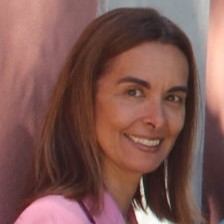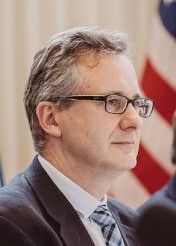 |
 |
Framework
In the past decade, several students from Técnico have had the opportunity to conduct the research for their master’s thesis as visiting scholars at Hopkins in the area of Bioengineering. As a result, all the visiting students completed their dissertation work with distinction. The overall feedback from the students is that conducting research at Hopkins was a lifetime opportunity that deeply shaped their personal and professional path. For the students involved in this exchange, the main highlights of this collaboration included having access to cutting edge technological tools, transfer of knowledge and interdisciplinary research.
At the initiative of some of these students, now alumni, in collaboration with Técnico’s International Affairs Division, a project was presented and received support from FLAD, the Luso-American Development Foundation, named HOPTEC.
Program
- Training Opportunities: 2 HOPTEC Scholarships for Técnico Master’s students to conduct the research for their master’s degree at Hopkins. In return, these two students would be named HOPTEC Ambassadors and be involved in the HOPTEC activities. More information in Applications.
- Dynamic Collaborations: HOPTEC Seminar Series; HOPTEC Annual Symposium; HOPTEC Grant Competition. More information in Initiatives and Applications.
- Scientific Advancements: By creating a network of exchange students and active collaborations, HOPTEC will promote the transfer of knowledge and skills between institutions, leading to impactful discoveries.
Objectives
- Promote transfer of knowledge and skills between institutions
- Provide cutting edge research opportunities
- Shape personal and professional paths to students from both institutions
HOPTEC Founders
 |
Inês Godet. My academic background in bioengineering provides me with problem-solving skills to study biological systems using innovative and interdisciplinary approaches. During my PhD, I conducted research in the lab of Dr. Daniele Gilkes at Johns Hopkins University. My PhD project focused on establishing a fluorescent fate-mapping system that allowed us to map the fate of cells that experienced intratumoral hypoxia throughout the metastatic cascade. We found that post-hypoxic cells are more invasive, metastatic and chemoresistant. |
 |
André Forjaz. Pursuing his PhD in Chemical and Biomolecular Engineering in the laboratory of Prof. Denis Wirtz at Johns Hopkins University. He has bachelor’s and master’s degrees in Electrical and Computer Engineering from Tecnico, at the University of Lisbon. André’s research focuses on application of novel AI and computer vision algorithms to study anatomical tissues. Through the implementation of CODA, a software for 3D reconstruction of tissues at single cell resolution, André studies changes in normal, and diseased tissues, such as pancreatic, lung and ovarian/fallopian tube cancers. |
 |
Denise Castilho de Matos. Has a Postgraduate degree in International Relations, a M.A. in African Studies and completed her advanced PhD training course in Human Geography, specialization in European Public Policy. Currently, she coordinates the International Affairs Division at Instituto Superior Técnico – ULisboa. She is involved in several European projects with emphasis in communication, internationalization strategies and entrepreneurship. She has over 15 years of experience in international relations: in and outbound student and staff mobility, international student recruitment, strategic partnerships, innovative academic programmes and project management. |
Crucial HOPTEC Contributors
 |
Prof. Denis Wirtz. As Vice Provost for Research and Theophilus Halley Smoot Professor at Johns Hopkins University, Denis Wirtz has made groundbreaking contributions to the physics of cell migration and mechanobiology. Through quantitative methods like particle tracking microrheology, Wirtz pioneers research on 3D cell motility, bacterial division, and high-throughput phenotyping. His 250+ seminal publications have 31,000+ citations, and he has been elected Fellow of AIMBE, AAAS and APS. Wirtz founded the Institute for NanoBioTechnology at Hopkins and directs multiple NCI training programs. His recent CODA technology enables AI-powered 3D tumor imaging. With degrees from the Free University of Brussels and Stanford, Wirtz’s prolific, cross-disciplinary career spans physics, biology and oncology. |
|
Prof. Cláudia Lobato da Silva Prof. Fátima Montemor Prof. Tiago Fernandes Prof. Rogério Colaço Margarida Fernandes Rodrigues Maria José Ferrão |
| Contacts | hoptec@tecnico.ulisboa.pt | Twitter/ X | YouTube |


